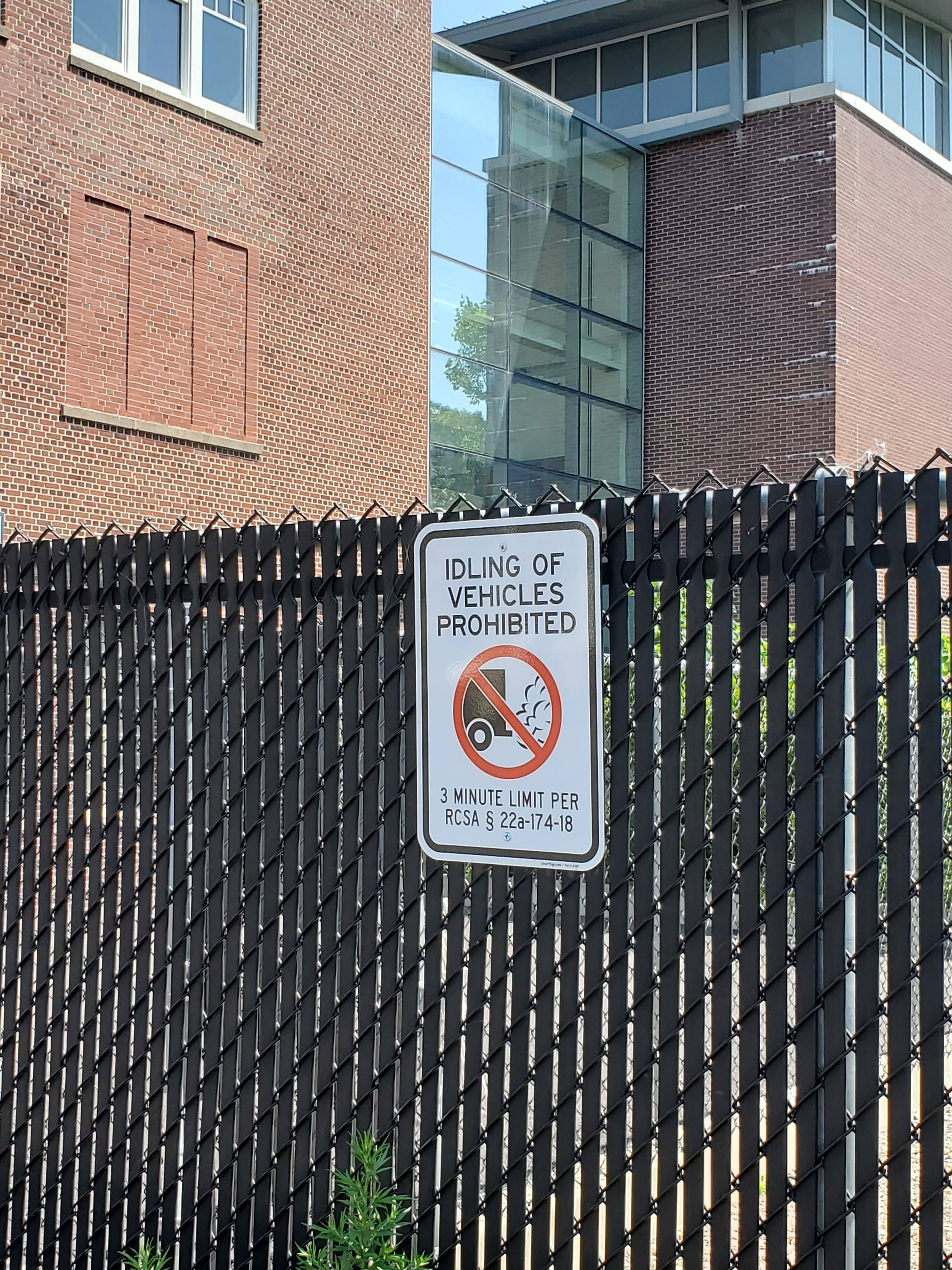
There is a long list of reasons to turn off your engine rather than idling. Just choose one, and set a good example.
Summer arrived with a vengeance this week across the country as well as in Greenwich. Diminished air quality, drought and extreme heat conditions can be a deadly combination. Simply turning off your engine can alleviate some of these issues.
Greenwich YMCA is requesting help in creating a healthier environment. Anti-Idling signs have been posted outside the building to encourage all drivers to turn off their engines. Read your email, make a call, then start your car.
Anti-idling is a local, state, and federal regulation restricting idling to no more than 3 minutes. https://portal.ct.gov/DEEP/Air/Mobile-Sources/Anti-Idling/Anti-Idling—Home
Signage has been posted instructing drivers of parked cars and those waiting in the pick-up line to turn off their engines. Michael Kelly, YMCA’s COO, said “Our goal is to reduce CO2 gas from idling engines.” Breathing exhaust fumes can damage brain cells and may be linked to autism. A study in New York City showed that kids with high exposure to combustion engine byproducts had lower IQs by age 5.
Please join the YMCA in its goal to improve air quality and lessen the extreme heat conditions across our country. Please do your part. Turn Off Your Engine. If you own or manage a parking lot, post a sign. It’s the healthy option, and it’s the law.
Positive outcomes from turning off your engine:
- It saves gas: If you idle for 5 minutes warming up your car in the morning, 3 minutes at the bank drive-thru, and 4 minutes listening to the end of an NPR story in your driveway, you’ve burned enough gas to drive 6 miles.
- It saves money: Americans spend a whopping $13 million every day on unnecessary idling. (That’s 3.8 million gallons of fuel, wasted!) Also, idling is actually illegal in some states, and violators can pay steep fines if caught.
- It saves the planet: For every 10 minutes of idling you cut from your life, you’ll save one pound of carbon dioxide — a harmful greenhouse gas — from being released into the atmosphere.
- It makes us healthier: Idling is linked to increases in asthma, allergies, heart and lung disease and cancer. Kids are especially vulnerable because they inhale more air per pound of body weight, and lots of idling happens near schools.
- It makes us smarter: Breathing exhaust fumes can damage brain cells and may be linked to autism. A study in New York City showed that kids with high exposure to combustion engine byproducts had lower IQs by age 5.
- It’s good for your engine: Idling can damage engine components. According to the California Energy Commission, “Fuel is only partially combusted when idling because an engine does not operate at its peak temperature. This leads to the build-up of fuel residues on cylinder walls that can damage engine components and increase fuel consumption.” And did you know that today’s cars warm up more efficiently when they’re driving than sitting in a driveway? They do.
- It’s quieter: Noise is pollution, too.
- It’s contagious: Turning off the car sets a good example for your kids and other passengers, and gives a chance for you to educate them about the dangers of idling.
- It doesn’t stink: Do you enjoy breathing in exhaust fumes? Yuck.
- It’s easy: Just turn the key when you’ll be stopped for more than 10 seconds. That’s all there is to it.



